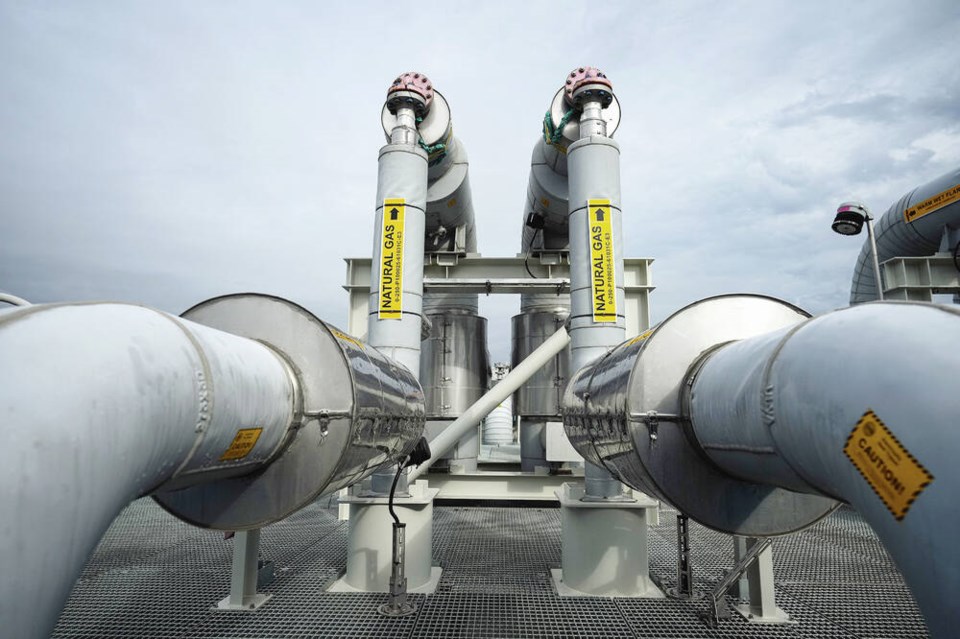Last month, the B.C. Climate Emergency Campaign released its second annual Climate Action Progress Report. The key message? B.C. is not on track to meet its climate targets.
This is not surprising, given that the province has never met its climate targets. Most notably, the government’s unwavering support for fracking and liquefied natural gas (LNG), while allowing thousands of new homes to connect to gas is undermining the minor progress that has been made and locking in climate pollution for decades.
Of the 10 urgent climate actions outlined by the B.C. Climate Emergency Campaign, seven received a score of “minor progress” in the 2023 Progress Report, while the remaining three received a failing grade.
This is a welcome improvement from the previous year, which assigned six failing grades to the government’s progress.
We acknowledge the small steps that have been made by the province to develop policies and programs that enhance nature conservation and biodiversity, strengthen public transportation, and recognize Indigenous rights and title.
For example, this past year saw the establishment of a ministry of emergency management and climate readiness; the launch of a new $300-million conservation financing mechanism to fund conservation measures led or supported by First Nations as part of the $1 billion dedicated for nature conservation; and a major influx of spending allocated to B.C. Transit, active transportation networks, and the Go Electric Commercial Vehicle pilot program.
We celebrate the government’s efforts to ramp up investments in climate action.
Unfortunately, there remains a glaring incoherence at the centre of B.C.’s climate plans: continued support for and investment in LNG production and expansion.
The United Nations and International Energy Agency have made it abundantly clear that there is no room on a safe planet for new fossil fuel infrastructure. And yet, this spring, the B.C. government granted environmental approval to the province’s third proposed liquefied fossil gas facility this year — Cedar LNG. The LNG produced by Cedar, once burned, will emit about eight megatonnes of greenhouse gas emissions per year — more than the entire city of Vancouver.
The government has opened public comment on a fourth LNG project that will produce nearly as much liquefied natural gas as LNG Canada Phase 1.
Combined, these projects require significant amounts of fracked fossil gas, and will produce 22.5 metric tonnes of carbon dioxide equivalent per year of emissions locally — equivalent to burning 25 billion pounds of coal every year — even before the gas will be exported, shipped, and burned in another country.
It is unacceptable and dangerous — even deadly — to continue approving new fossil fuel infrastructure in a climate emergency. Emissions need to be trending sharply downwards, not upwards. And with global demand for oil, gas, and coal projected to peak this decade, continuing to invest in fossil fuels is economically foolish, too.
To date, B.C.’s climate emergency response has been primarily reactive as the climate crisis rapidly escalates.
It’s time for the B.C. government to move from planning and promises to implementation on the ground. To move from words to action.
The speed and scale of the government’s current approach is incongruous with the climate emergency we face, and B.C.’s greenhouse gas reduction targets do not align with what science and justice demands.
We are facing an extraordinary challenge that requires extraordinary leadership.
The B.C. Climate Emergency Campaign, representing more than 550 organizations, is calling on the B.C. government to step up with meaningful regulations and investments to accelerate the transition to a zero-carbon economy that comes with so many health co-benefits: cleaner air to breathe, safer streets and more secure, healthier food systems.
The good news is we know exactly what we need to do — we need to stop burning fossil fuels. The solutions we need already exist, and the 10 urgent climate actions outlined in our open letter are a good place to start.
We need to act now.
Tracey Saxby is a marine scientist and executive director of My Sea to Sky, and lead author of the B.C. Climate Emergency Campaign’s 2023 Progress Report.
Grand Chief Stewart Phillip is president of the Union of B.C. Indian Chiefs.
Dr. Melissa Lem is board president of the Canadian Association of Physicians for the Environment (CAPE) and a family physician.
Bishop John Stephens is bishop of the Anglican Diocese of New Westminster.
Seth Klein is the team lead for the Climate Emergency Unit.
Emiko Newman is co-ordinator of the B.C. Climate Emergency Campaign, a joint initiative of environmental, Indigenous, labour, health, business, local government, academic, youth and faith communities who collectively represent 2.2 million British Columbians.



